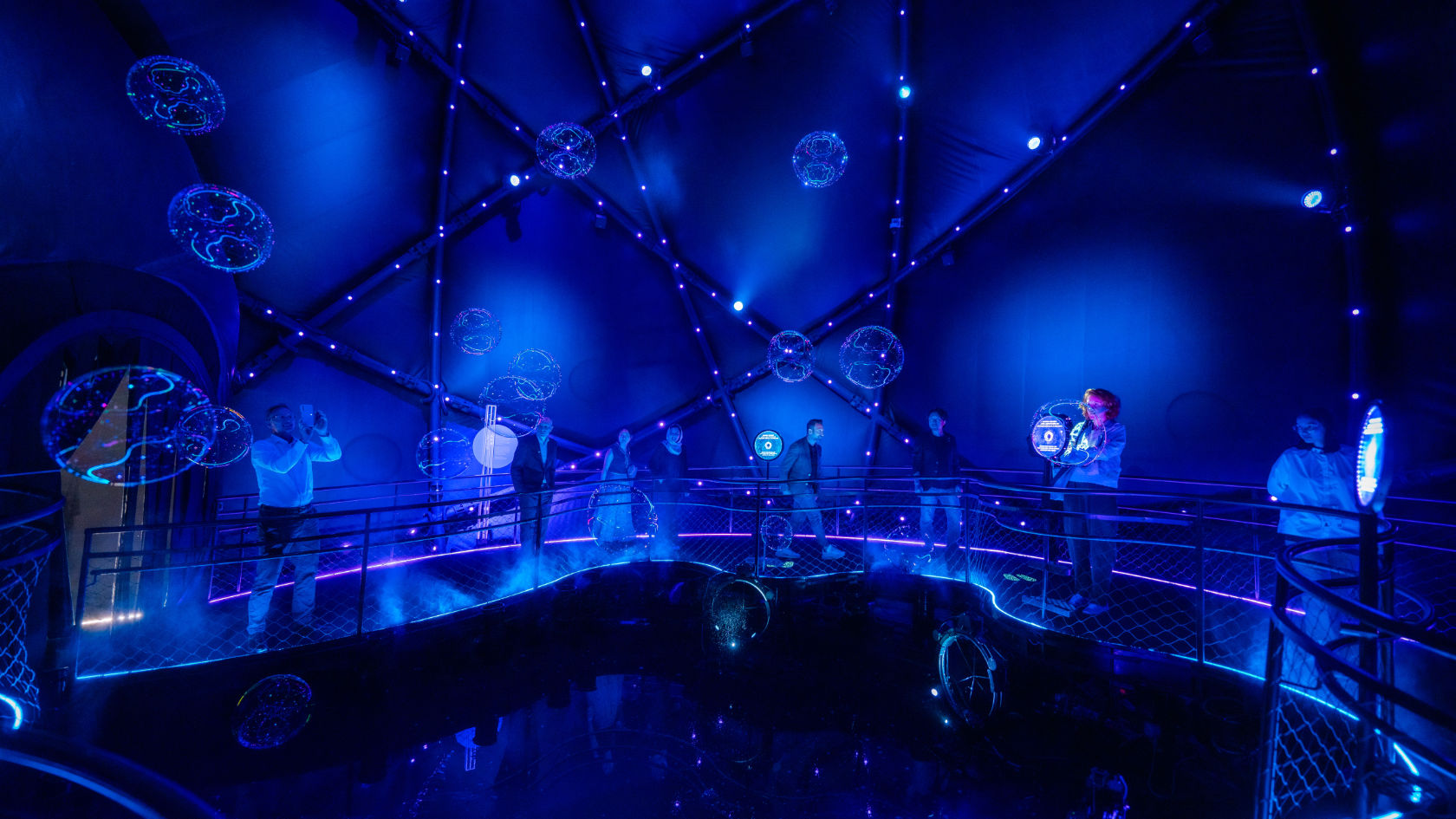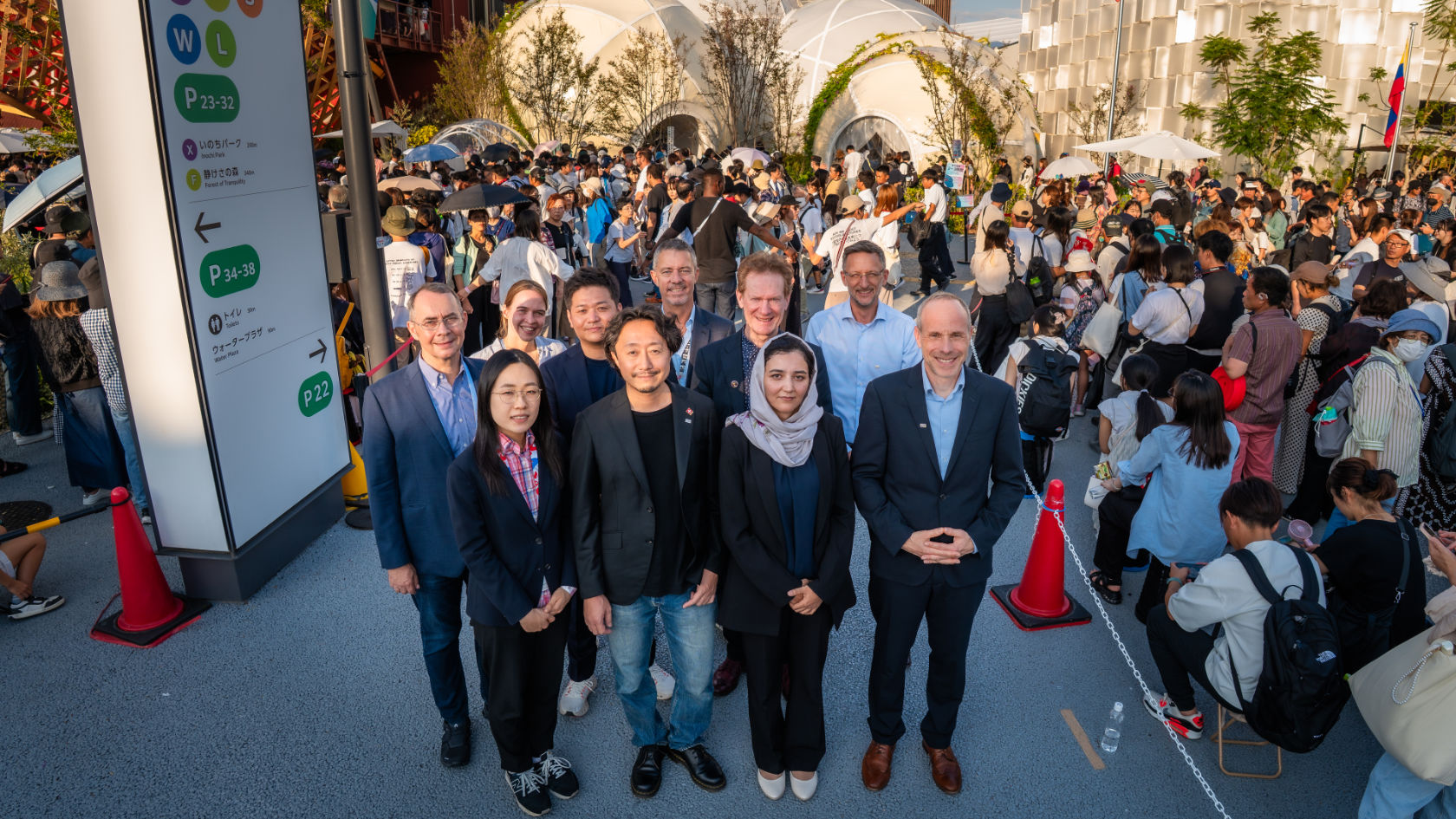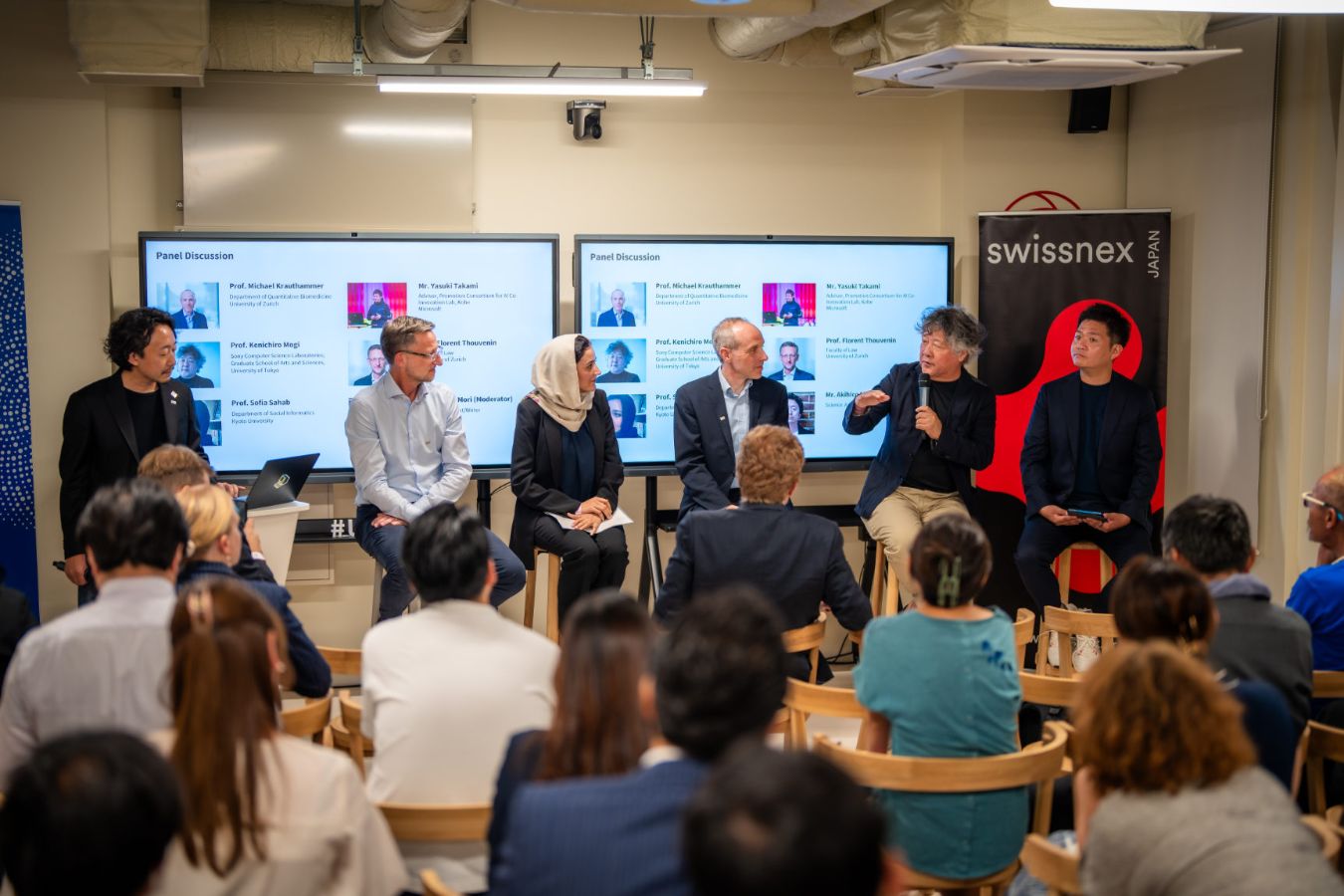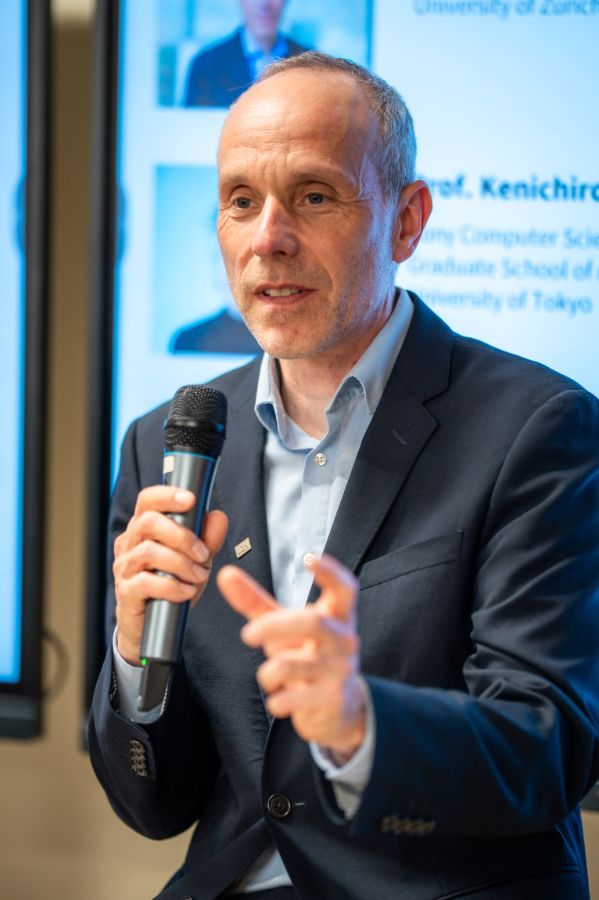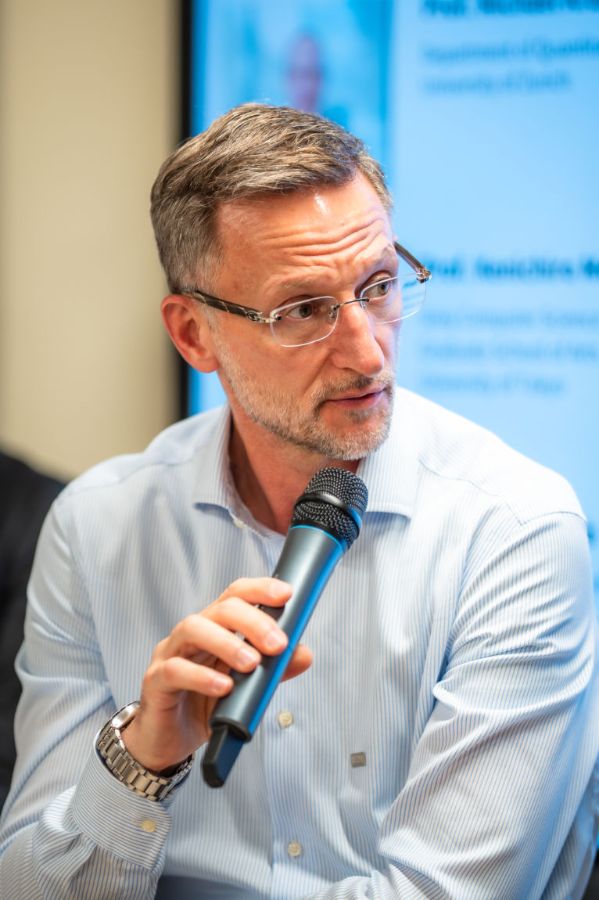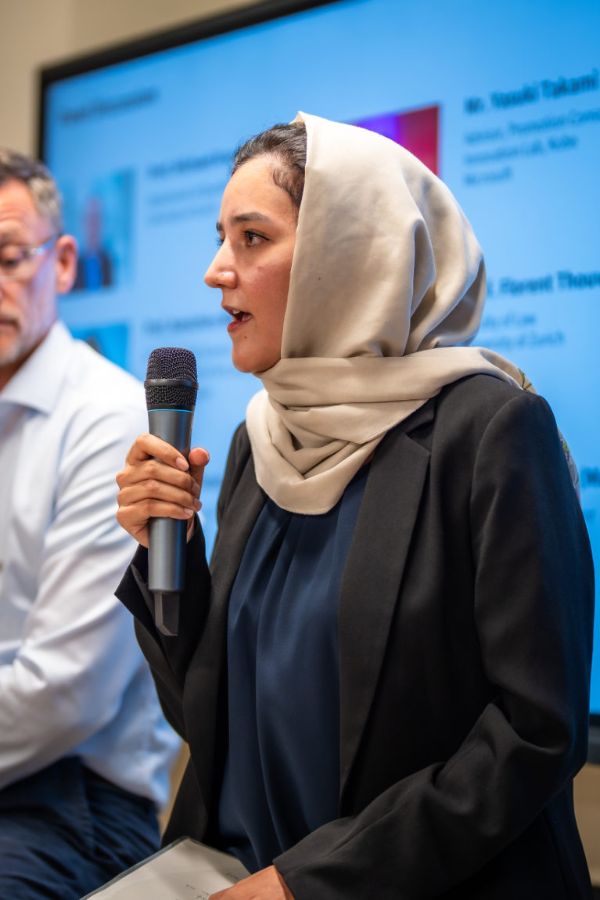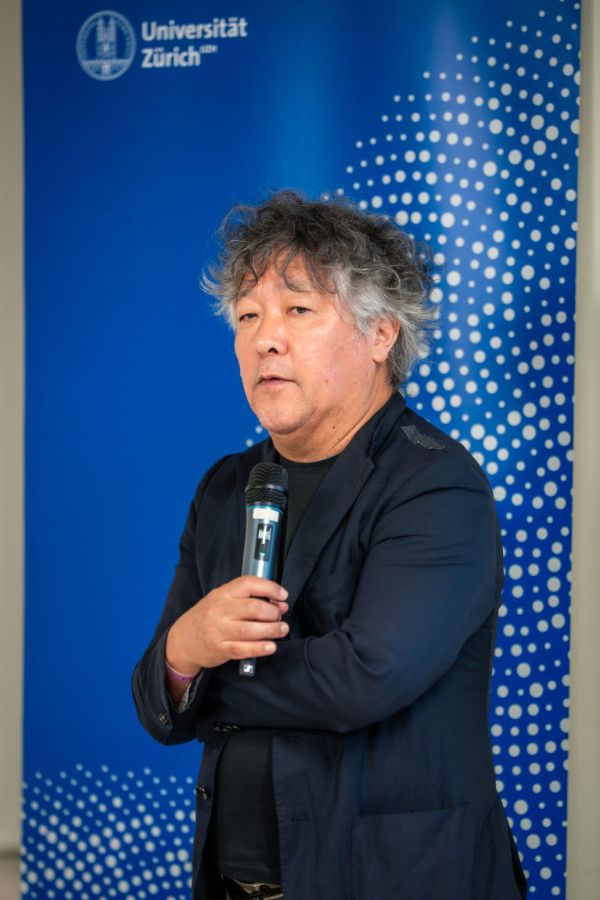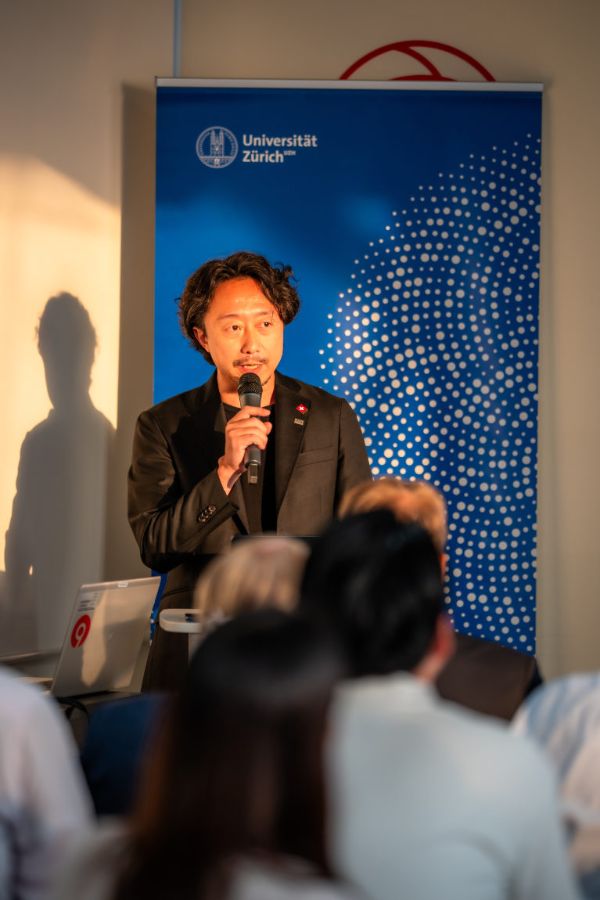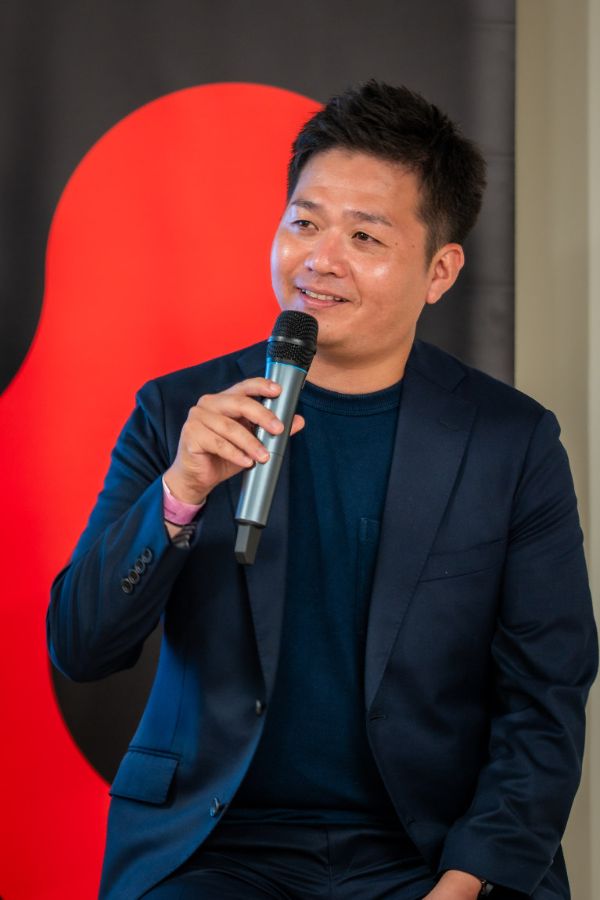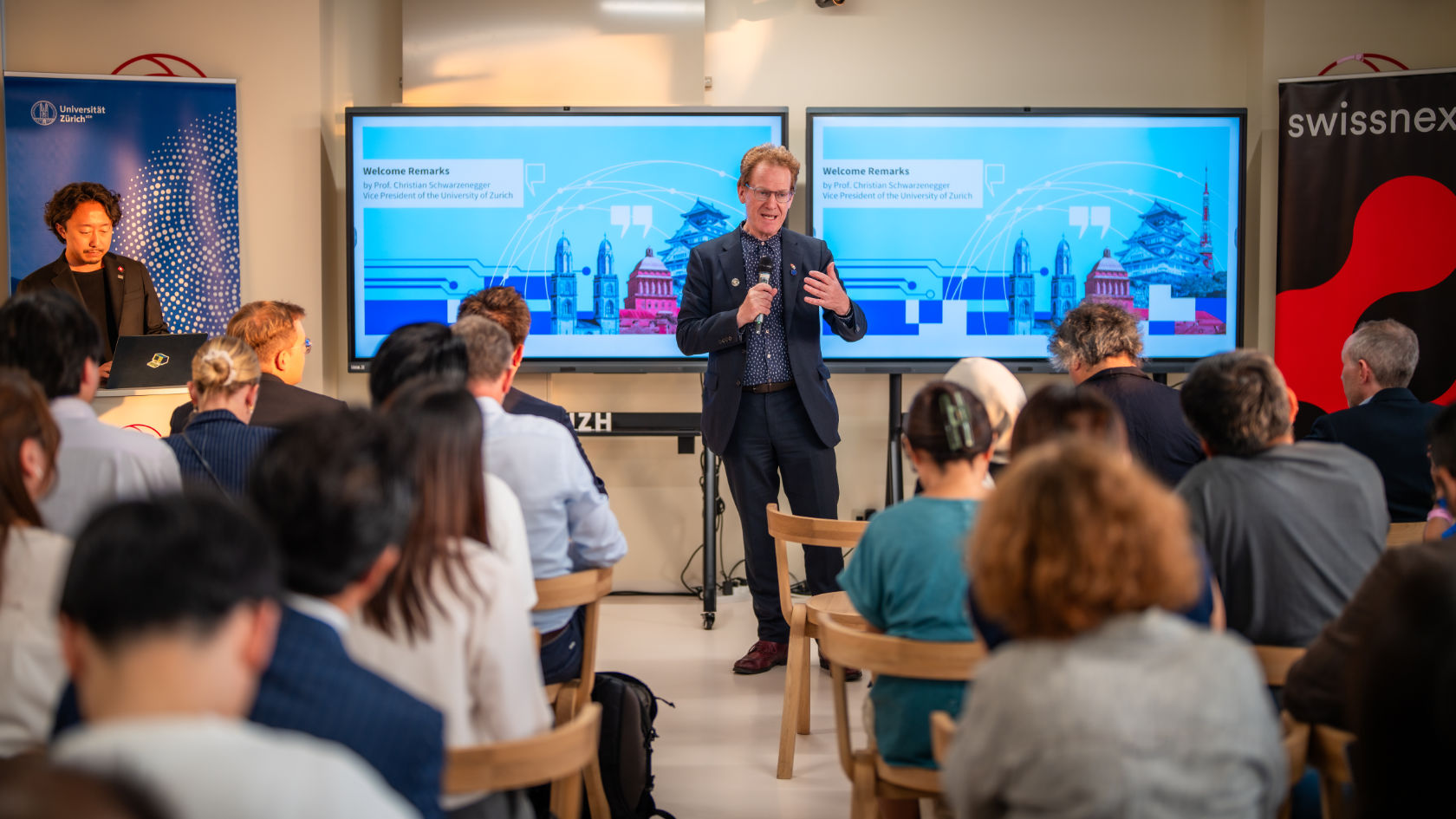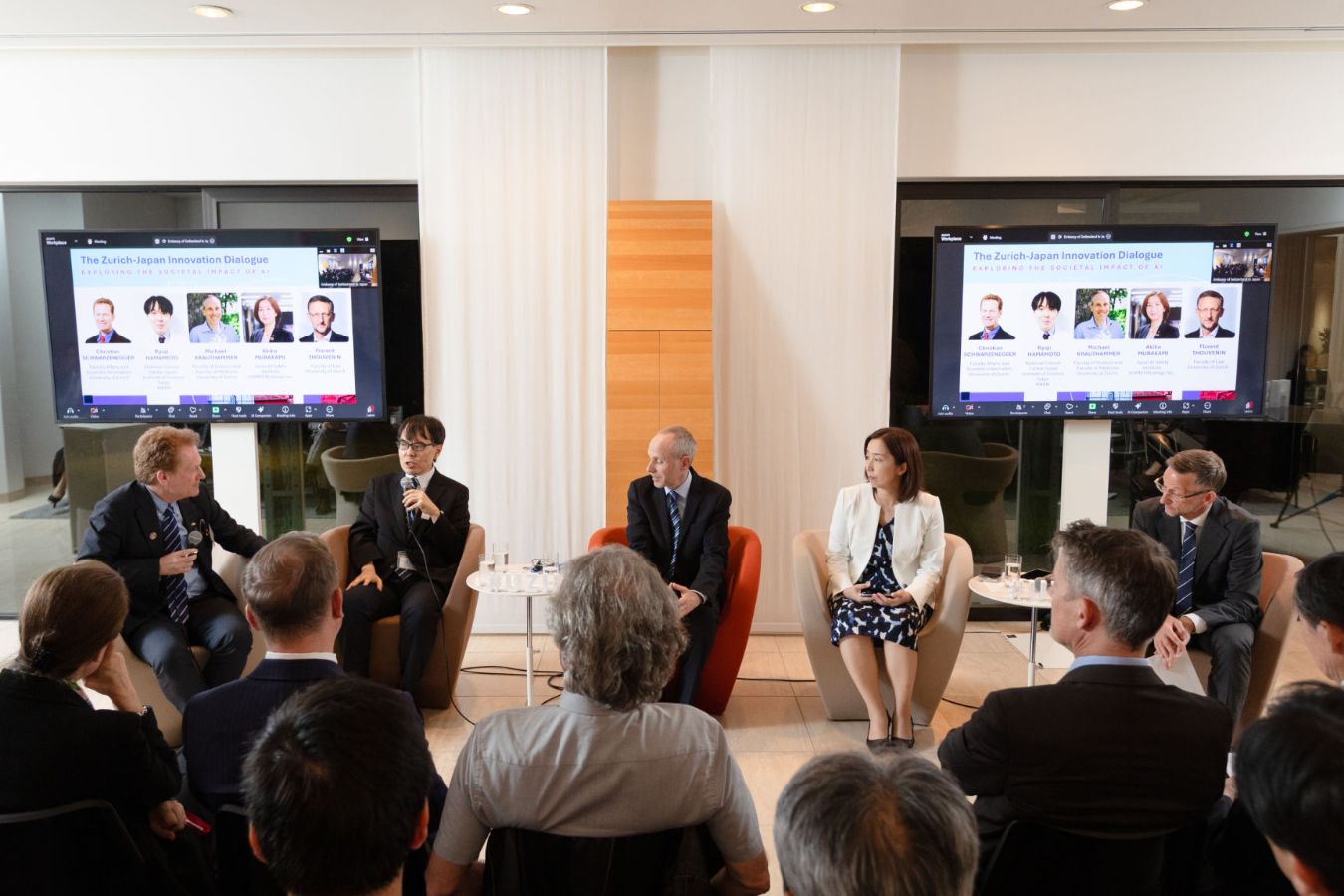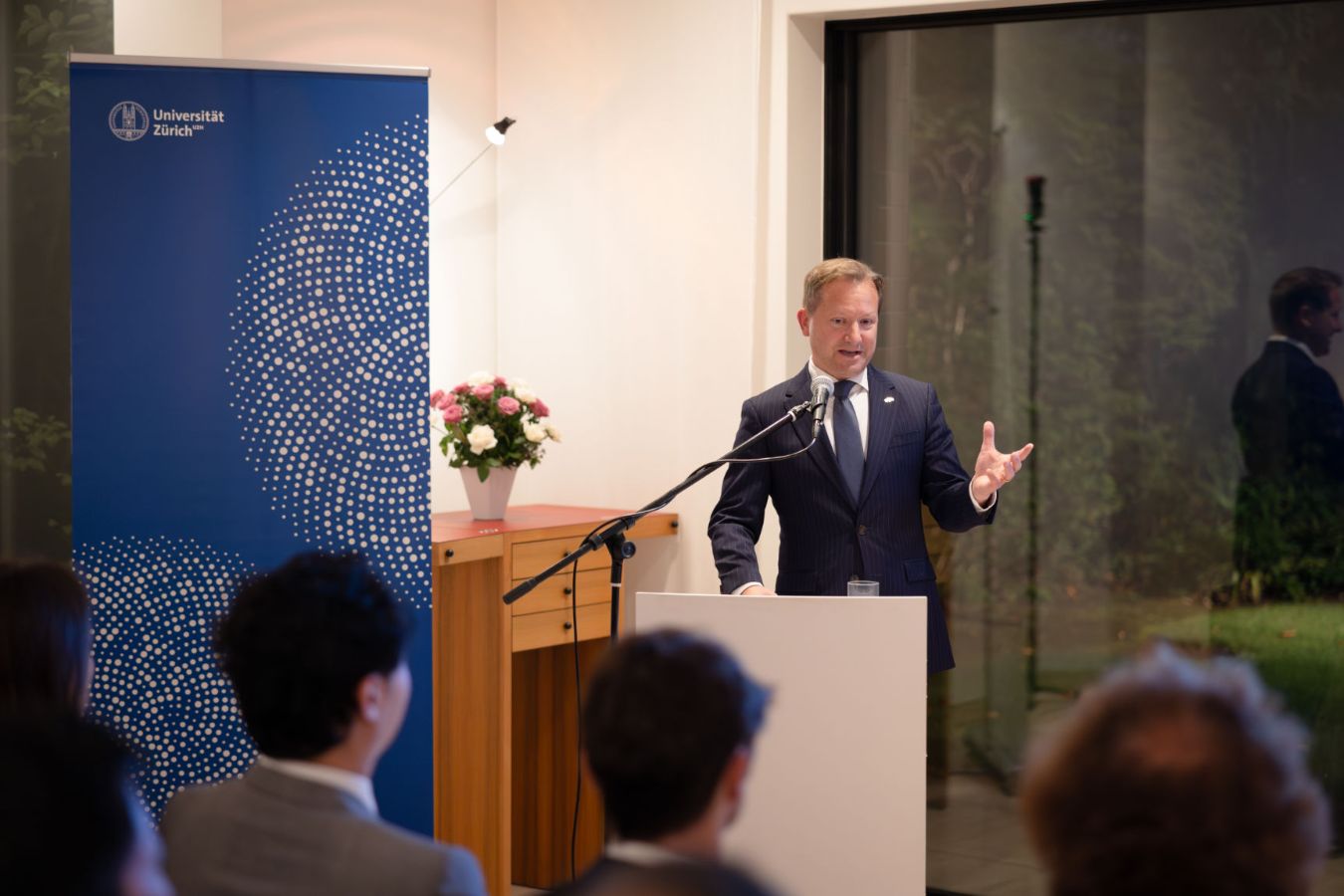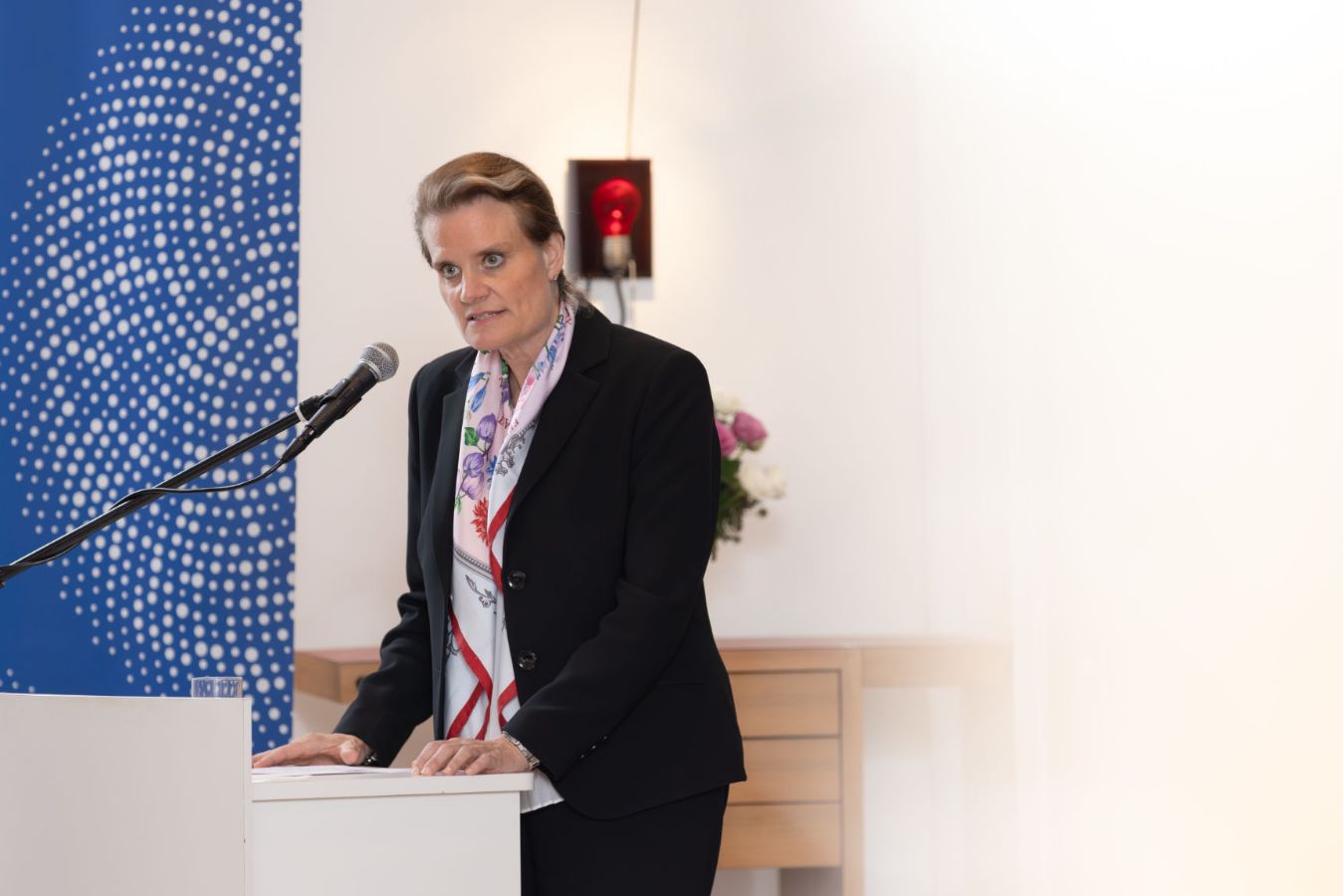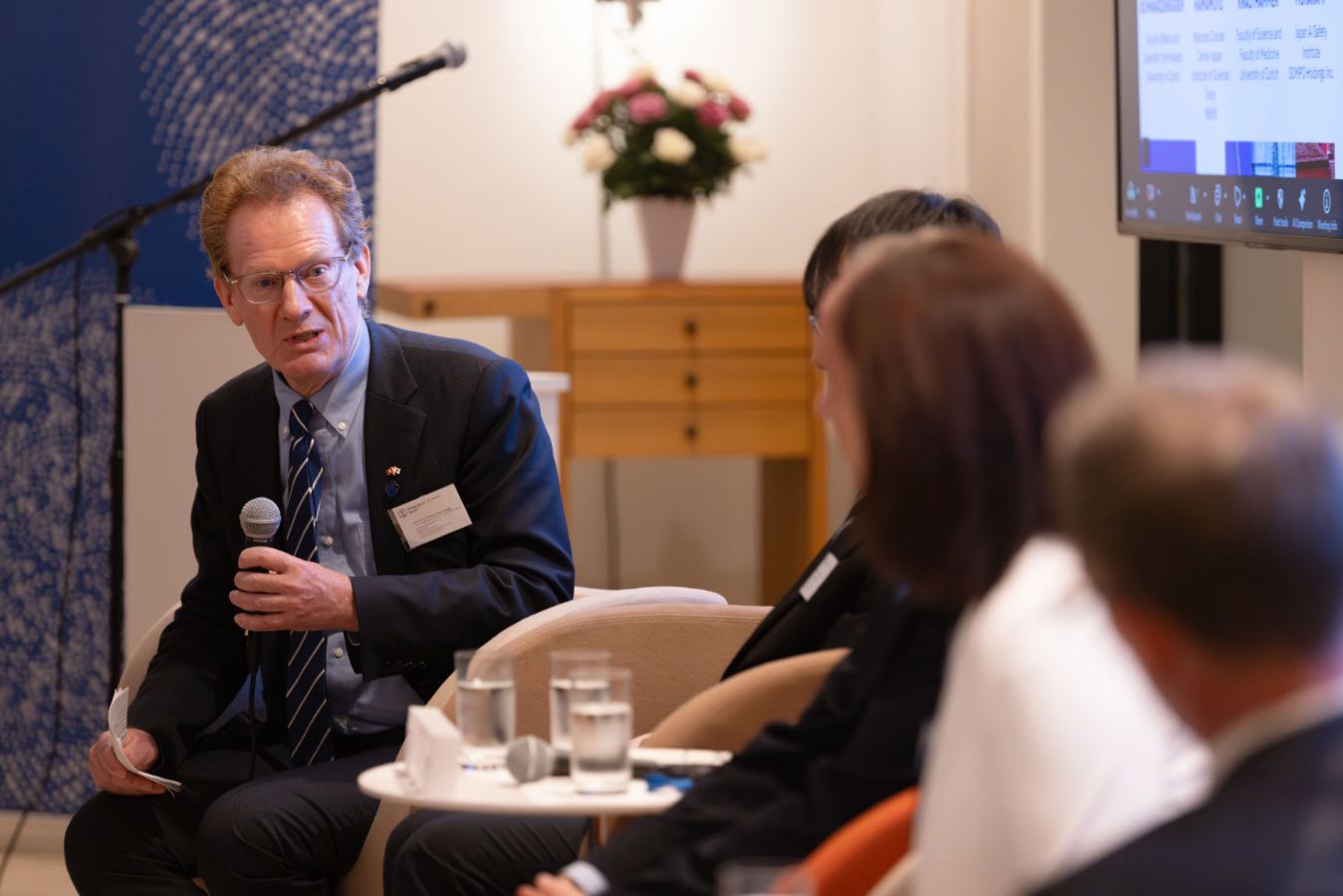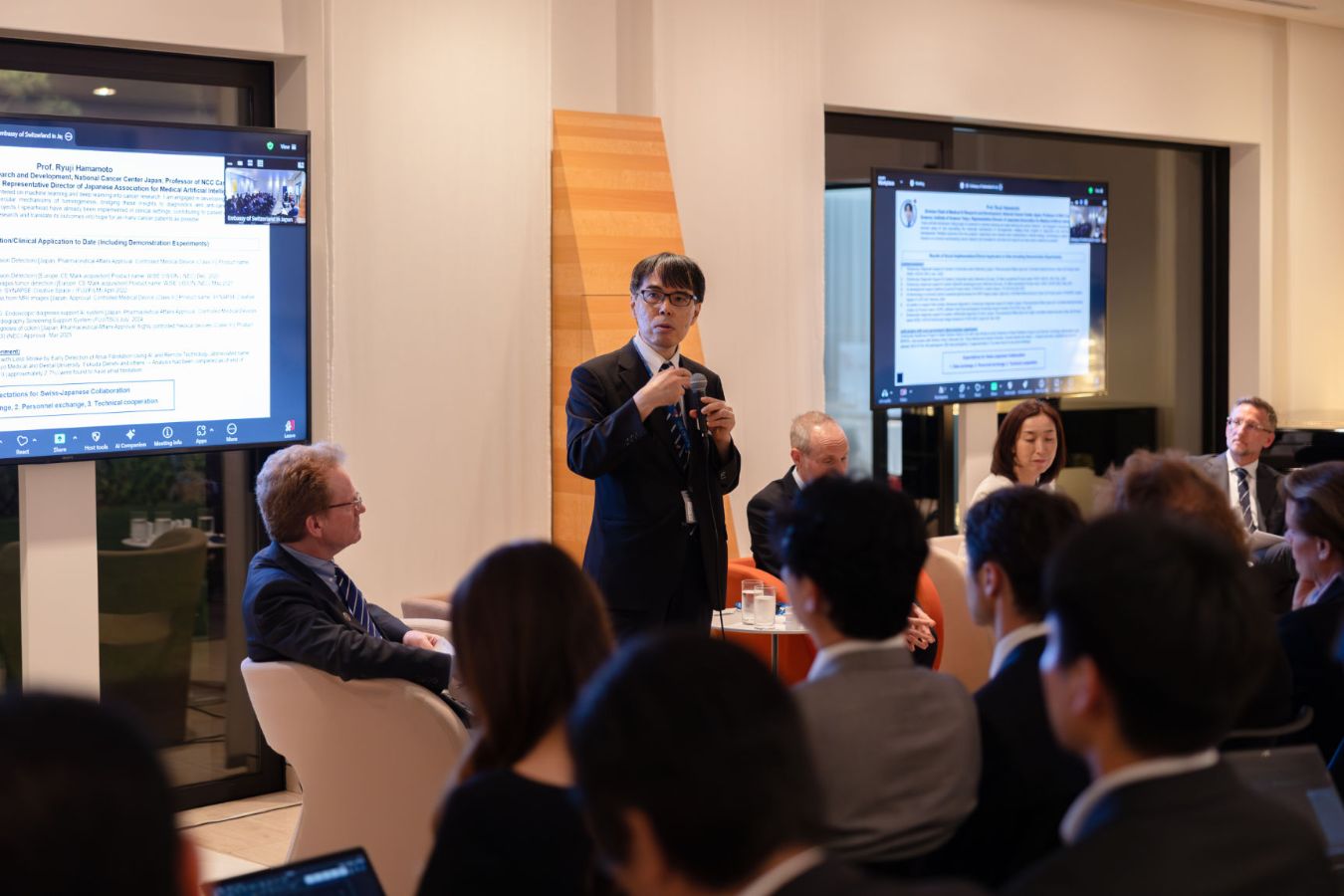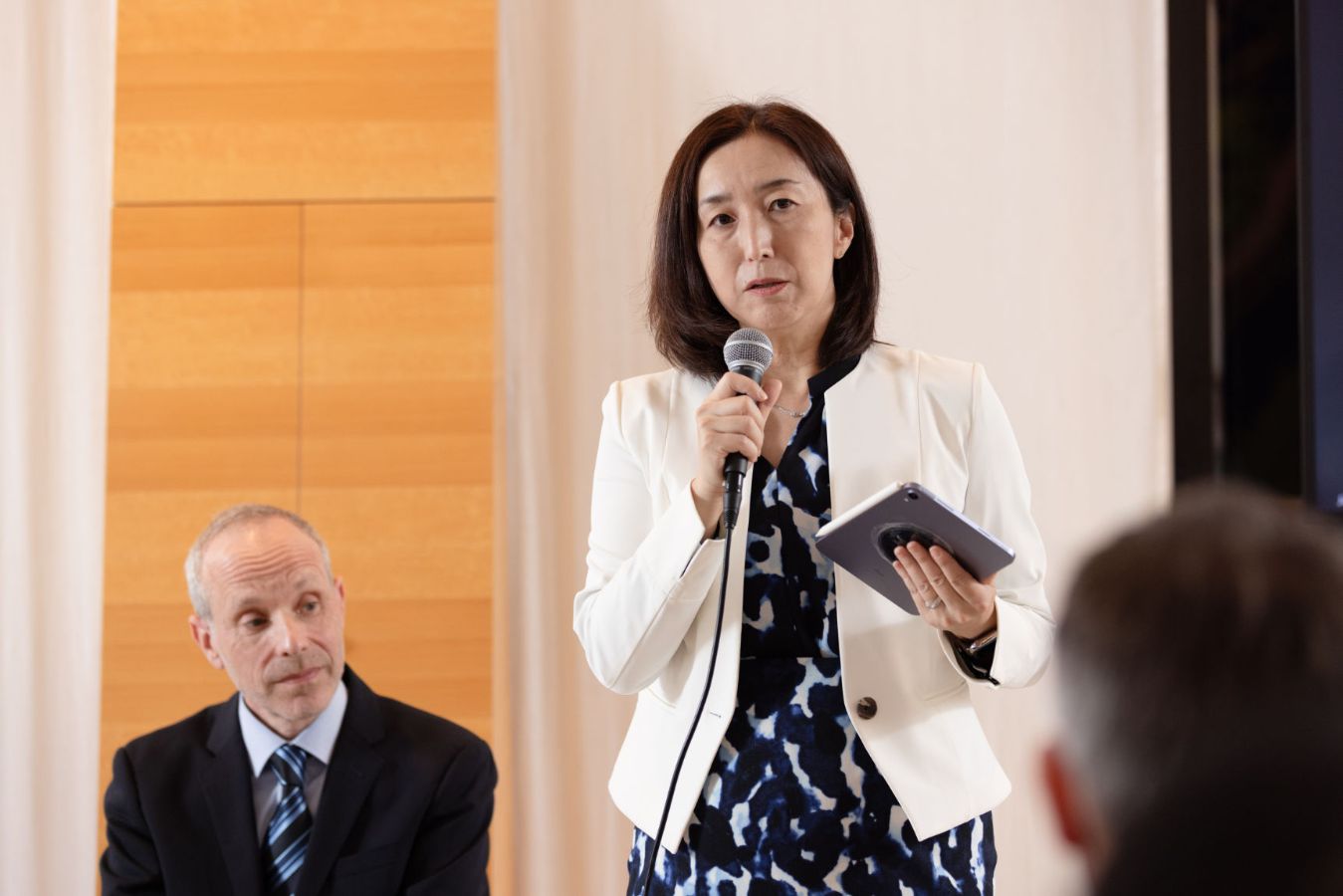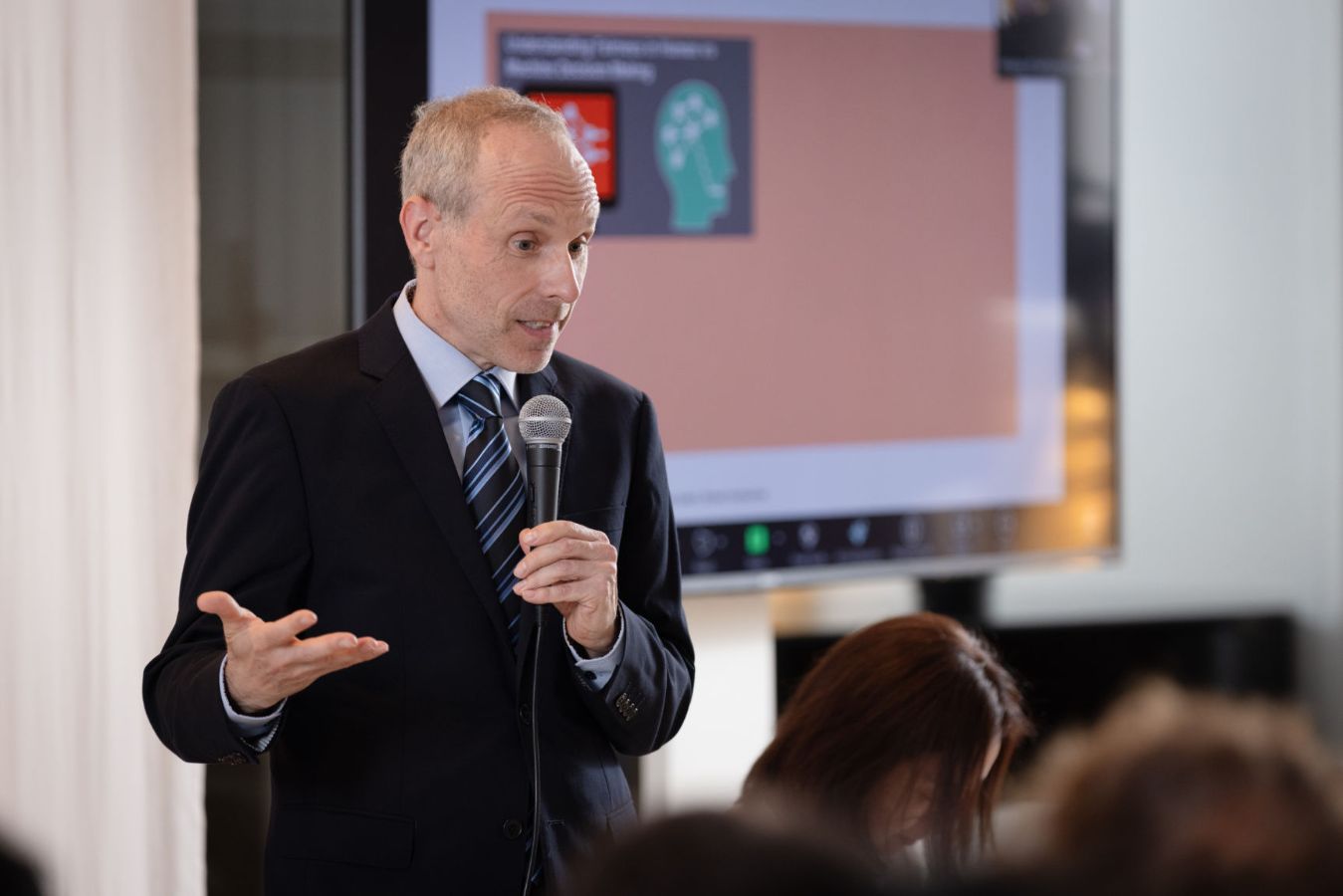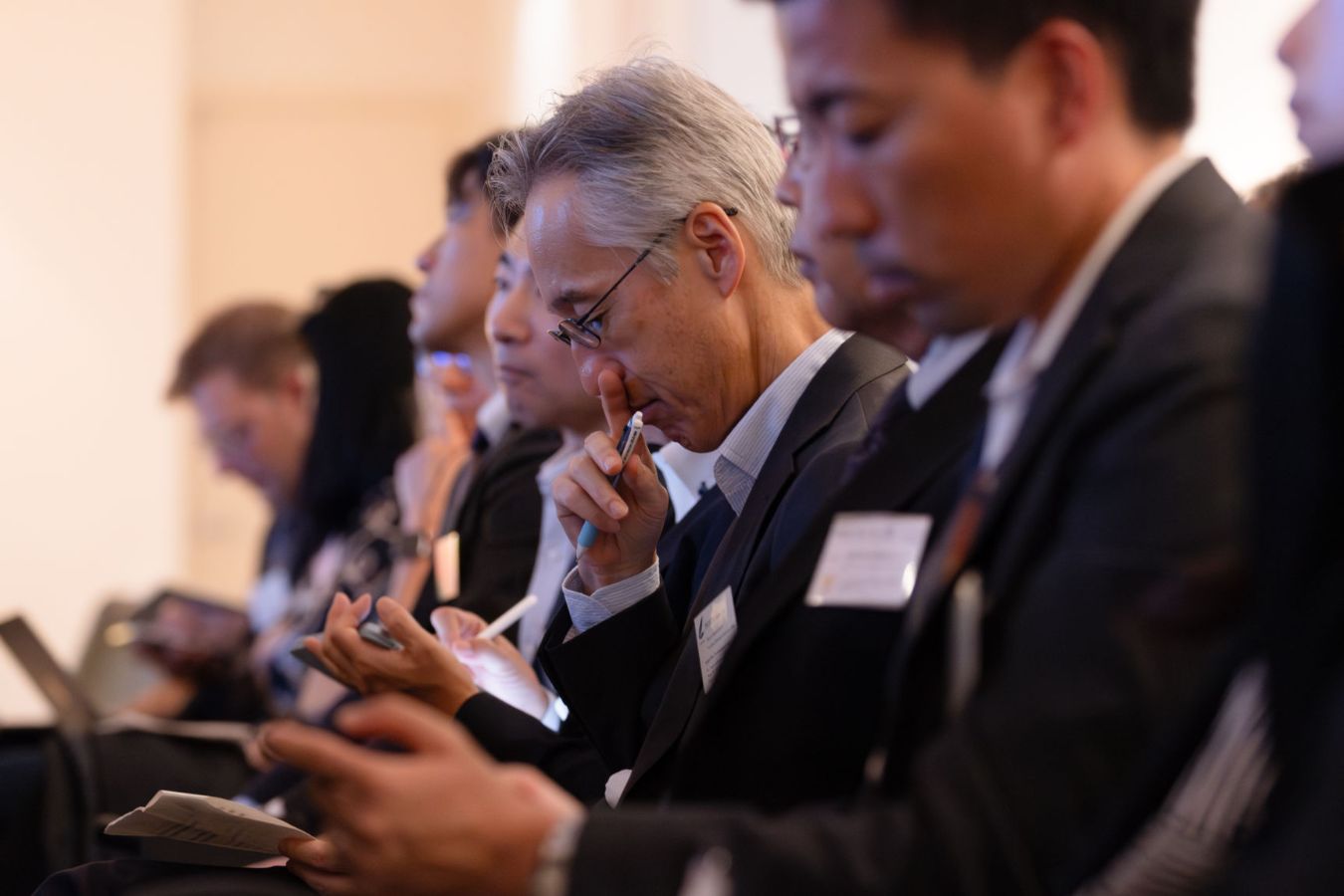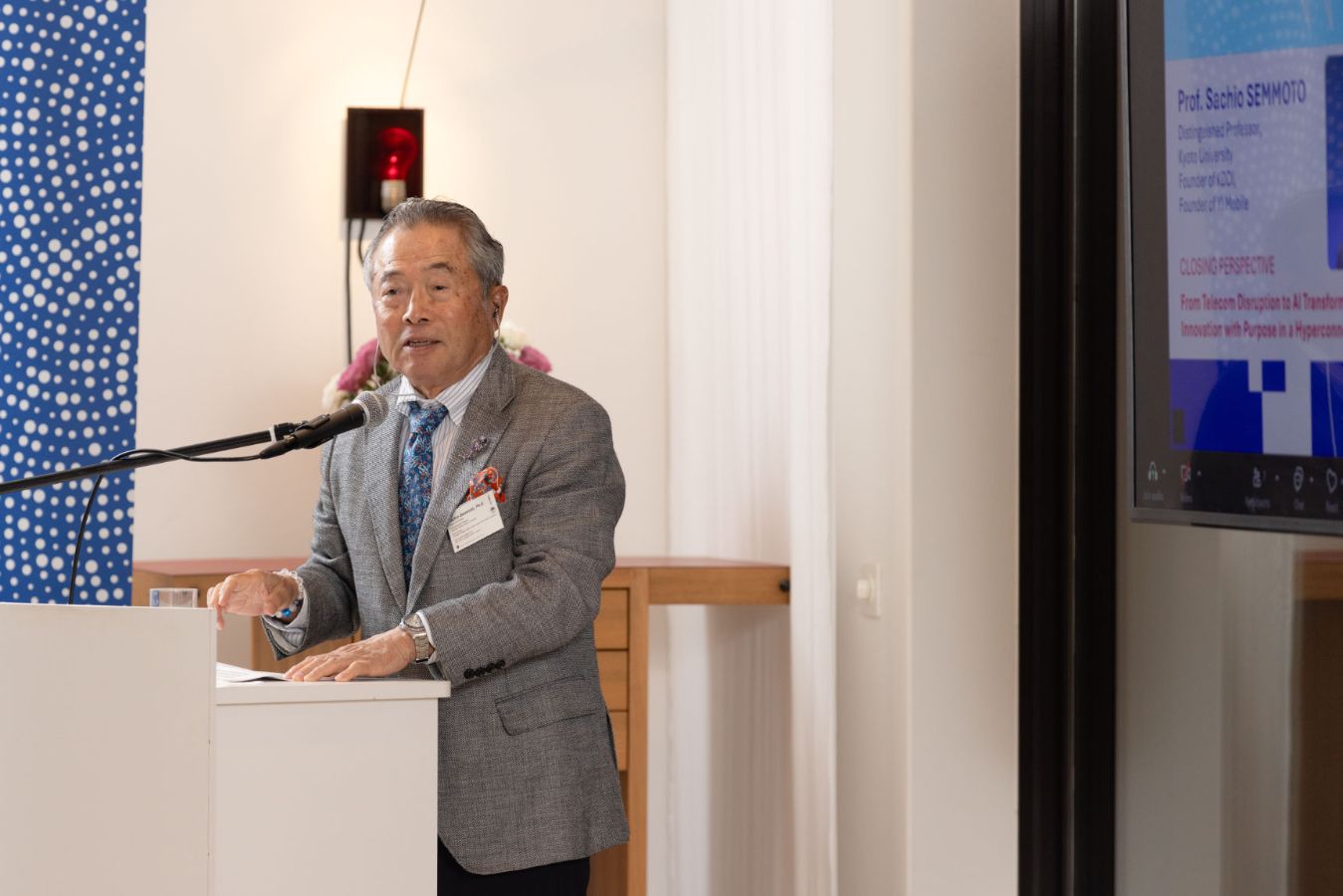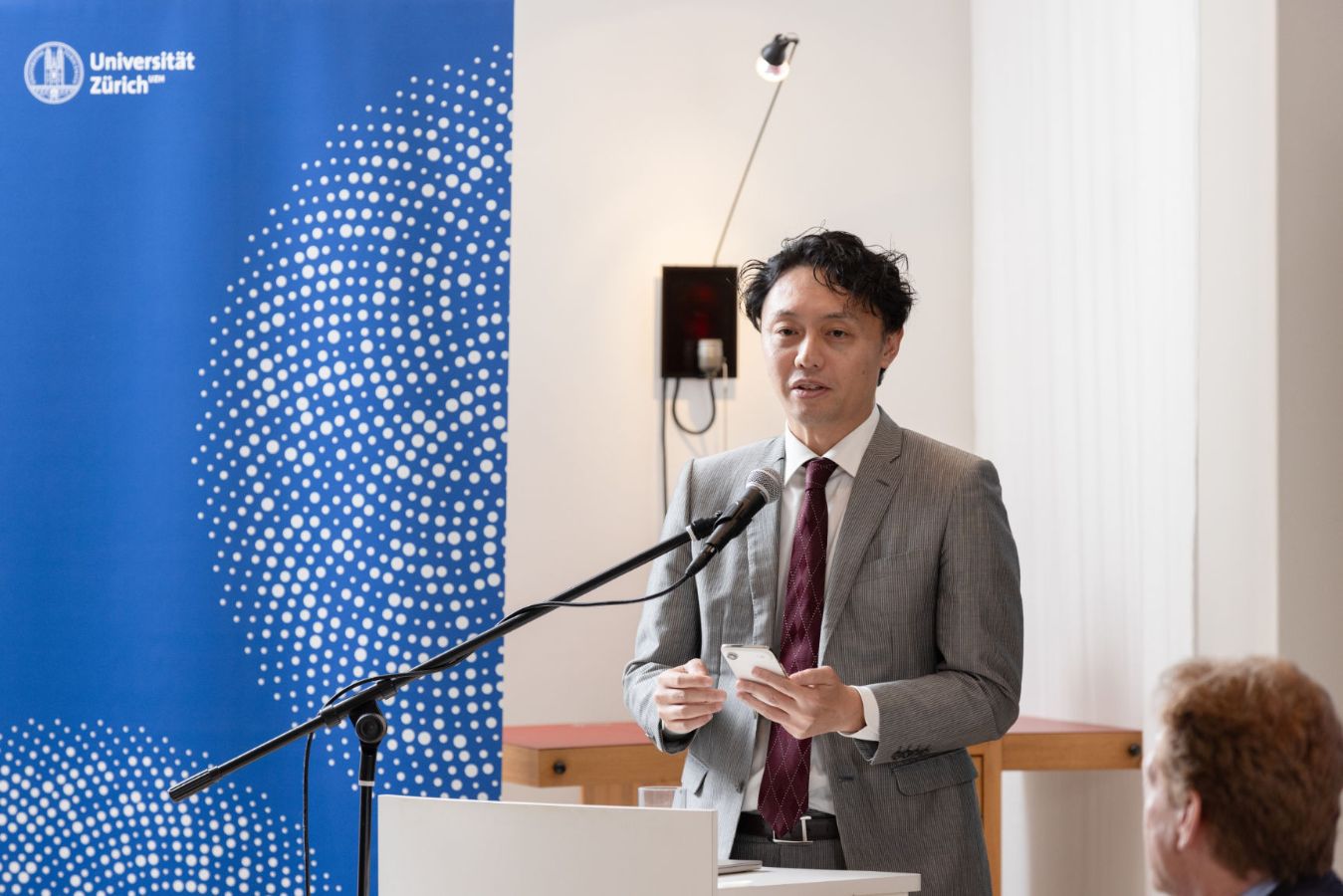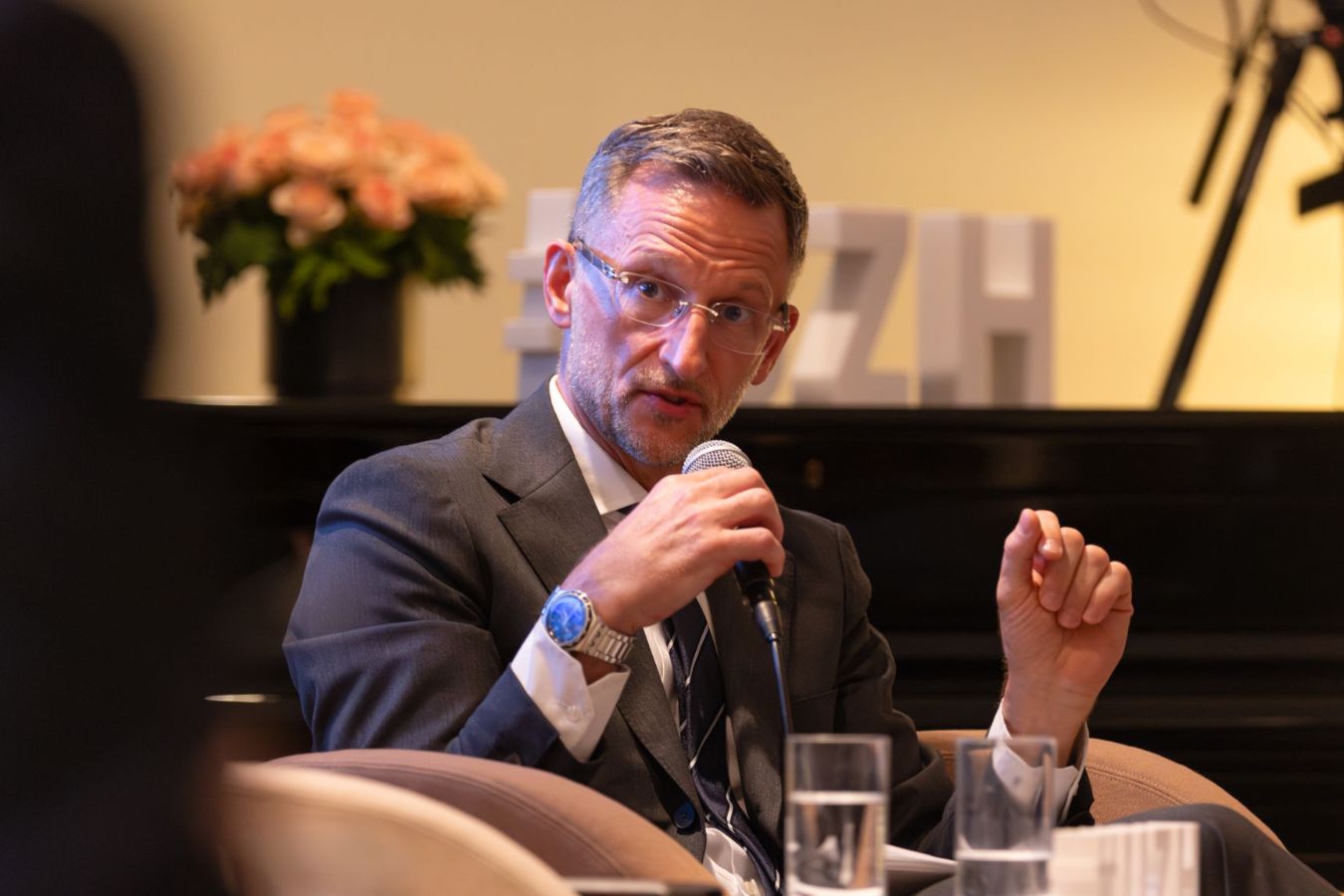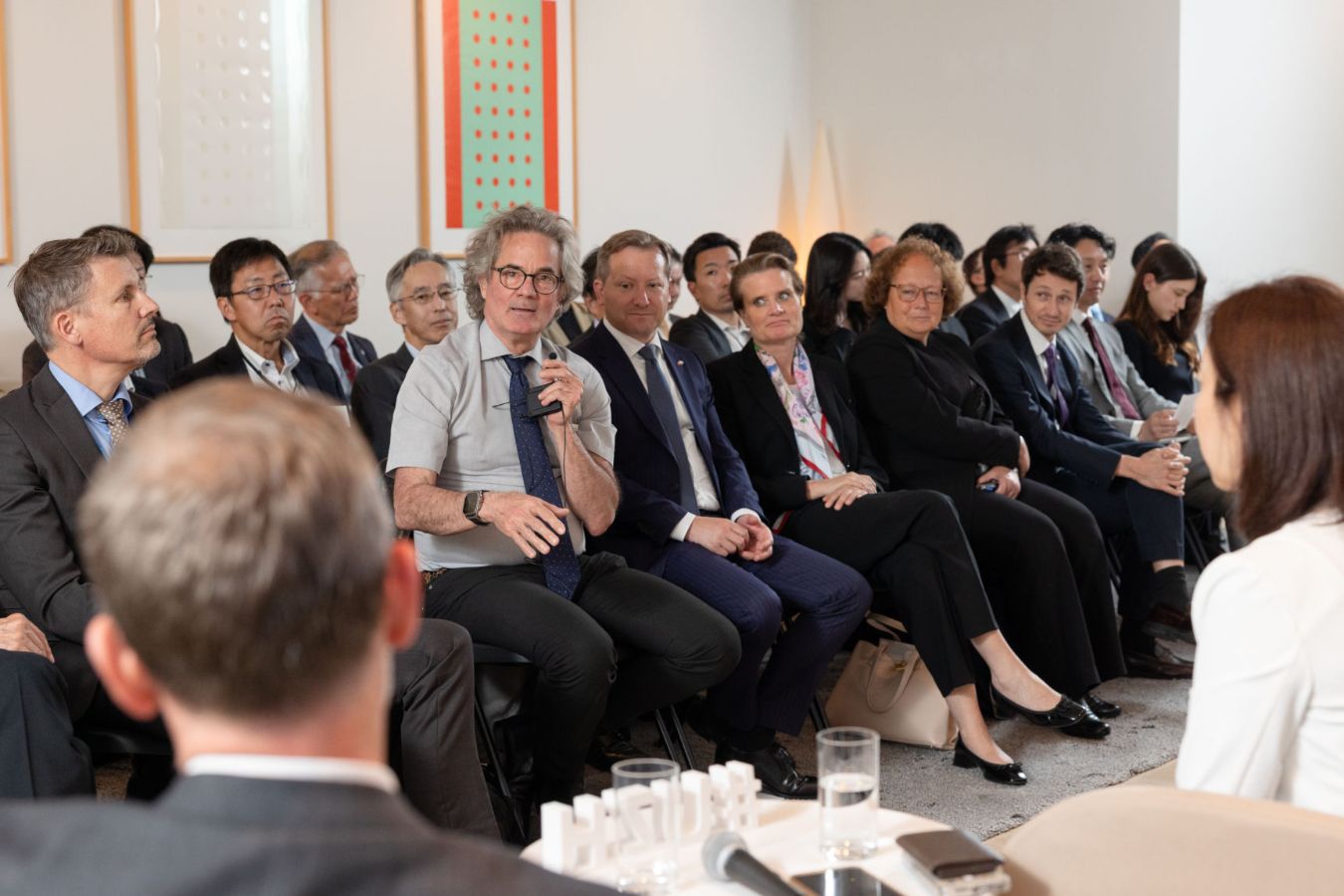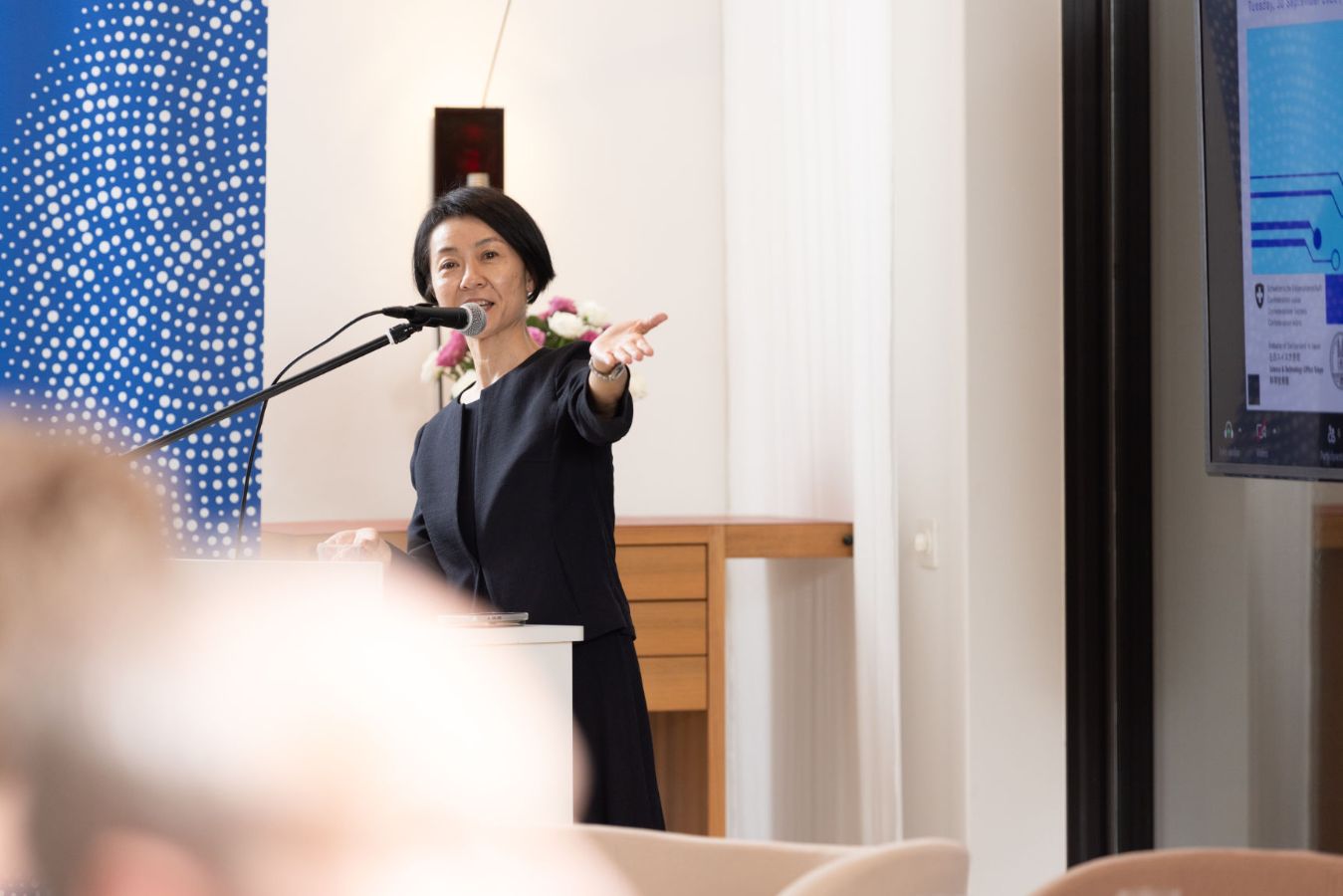Bringing Japan and Switzerland Closer Together
The World Expo 2025 in Osaka is coming to a close. The University of Zurich (UZH) has been a part of this major exhibition through different events, such as two science cafés hosted by the Institute for Regenerative Medicine (IREM), the UZH Blockchain Center designing a virtual main building, and even a performance by XII After Ours in knitwear created by Art x Science (see box).
UZH’s final event in Osaka took place just a few days ago in the Swiss Pavilion. The Zurich-Japan Innovation Dialogue brought together UZH researchers and Japanese experts to explore the societal impact of artificial intelligence (AI). In lightning talks and a panel discussion, the speakers focused on how AI is transforming core areas of human life, from healthcare and law to digital ethics, while encouraging conversation across both cultural and disciplinary lines.
The event, which deepened our understanding of the ethical, legal and social challenges posed by AI, featured an impressive list of speakers from both countries. From Japan, Kenichiro Mogi, Sony Computer Science Laboratories and Project Professor at the Graduate School of Arts and Sciences, University of Tokyo; Sofia Sahab, Program-Specific Assistant Professor at the Graduate School of Informatics in the Department of Social Informatics at Kyoto University; and Yasuki Takami, Advisor in the Promotion Consortium for AI Co-Innovation Lab Kobe, Microsoft, put their expertise forward.
AI as a companion
From UZH, Michael Krauthammer, Professor of Medical Informatics, shared his thoughts on AI in Medicine: “AI has the potential to empower individuals by democratizing access to knowledge. It acts as a trickle-down phenomenon; placing insights into the hands of those who may not have specialized expertise, for example patients,” said Krauthammer. He outlined how AI could improve healthcare across four domains: quality, labor, costs and innovation. Krauthammer, who is Director of the Department of Quantitative Biomedicine at UZH, also stressed: “The idea that AI will completely take over is unlikely. A more realistic scenario is that AI will serve as a companion to humans: supporting, not replacing, medical professionals.”
Preventing harm, fostering Innovation
Florent Thouvenin, Professor for Information and Communications Law, focused on AI in law. He also compared the Japanese and Swiss approaches to regulation: Japan is pursuing an agile approach, regulating AI-related issues proactively in applicable sector-specific regulations. By contrast, Switzerland tends to rely on adapting the existing legal framework to address problems as they arise rather than attempting to anticipate every potential future challenge.
“Effective AI policy should ensure that the use of AI does not cause harm to individuals or the society at large, while allowing sufficient leeway for innovation,” Thouvenin said. He has spearheaded The AI Policy Observatory, a website with condensed information on the approaches taken in different jurisdictions (see box).
Why Japan, why Switzerland?
Prof. Christian Schwarzenegger, Vice President Faculty Affairs and Scientific Information at UZH, shared his thoughts about why Japanese-Swiss collaboration matters: “Switzerland and Japan, both recognized as global leaders in innovation, are natural partners in shaping the future of AI,” Schwarzenegger said. “By bringing together stakeholders from both countries to address the societal integration of AI, shared values such as trust, reliability and security – deeply embedded in both cultures – form a strong foundation for collaboration in this field.”
Strong ties
Apart from the panel at the Expo, other events also strengthened the collaboration between Japan and Switzerland. On 30 September, an event at the Swiss Embassy in Tokyo also tackled what the societal impact of artificial intelligence can look like. After welcoming remarks by Ambassador Roger Dubach, this insightful evening was opened by State Secretary Martina Hirayama, who led a mission of the State Secretariat for Education, Research and Innovation (SERI) to Japan. Dr. Sachio Semmoto, Distinguished Professor, Kyoto University, Founder of KDDI and Y! Mobile., provided the closing remarks. Renowned AI expert, Prof. Yutaka Matsuo from the University of Tokyo provided reflective remarks.
The program also included a Swiss Alumni Symposium in the Swiss Pavilion at the Expo, and Christian Schwarzenegger represented UZH at this year’s Science and Technology in Society (STS) forum, an annual international conference in Kyoto that brings together leaders in science, technology, industry and policy from around the world, focused also on AI.
A glimpse ahead
The strong ties between Japan and Switzerland will continue: UZH and its strategic partner Kyoto University (KU) will hold a joint symposium from 4–6 February 2026 in Zurich under the theme “Improving the Quality of Life – What We Can Learn From Each Other.” Over 40 researchers and university leaders will travel from Kyoto to Zurich to join UZH counterparts in leadership exchanges, research showcases, interdisciplinary breakout sessions, and opportunities for early-career researchers to present their work—strengthening the long-standing UZH–KU strategic partnership.
Japan is one of Switzerland's most important science and technology partners. To strengthen such partnerships across the Asia-Pacific region, the University of Zurich, mandated by SERI, hosts the Leading House Asia Pacific, Switzerland's bilateral science and technology cooperation program. Through this mandate, UZH will continue to foster bottom-up projects that build long-term, impactful collaborations in research, education and innovation.
